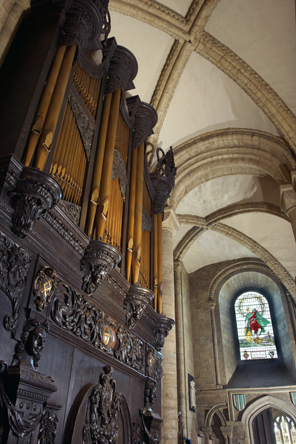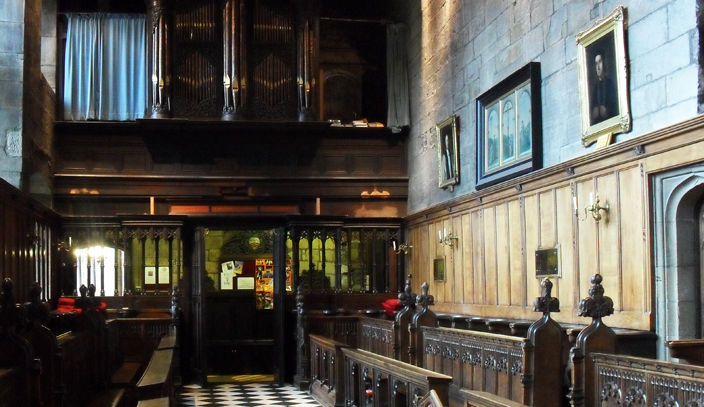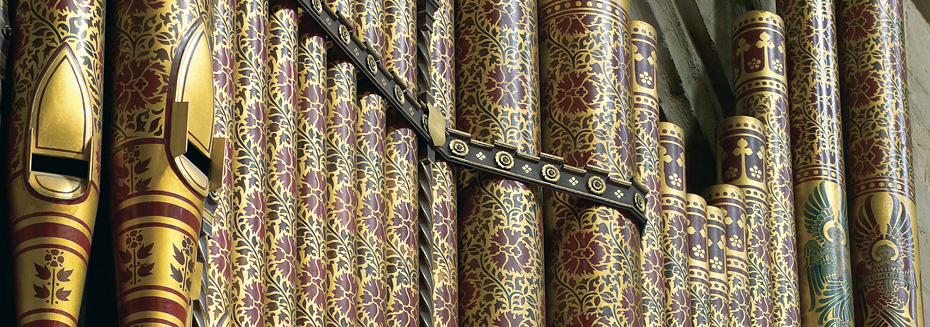
Durham Cathedral made sure to keep up with the times as far as organs were concerned, and this meant that there were always old organs at hand. Seen here is the case of the seventeenth-century organ which bears the emblem of the Bishop John Cosin. It is now used as a changing room for Cathedral Stewards!
© Durham Cathedral and Jarrold Printing
It is likely that there have been organs in Durham Cathedral for the last 700 years.
The earliest specific account, from the 1530s Rites of Durham, mentions that there were five in the building at the time.
The Dallam Family
In 1621, the main organ, on the quire screen, was replaced by one made by Thomas Dallam, who also built one for King’s College, Cambridge, and was the patriarch of an illustrious family that made organs for important buildings in England and France for three generations.
The Thomas Dallam organ did not survive the civil war, and after using “temporary little organs," from London, a new organ was commissioned from Dallam’s grandson, George.
The George Dallam organ, finished by Christmas 1662, was a double organ that cost 550 pounds.
The Father Smith Organ
The George Dallam Organ seems to have been rapidly outdated, for in 1683, the Cathedral Chapter contracted the king’s organ-maker, Bernard “Father” Smith for a “good, perfect, laudable, and harmonious great organ and chair organ, with a case of good, sound and substantial oak wood” for £700.
The organ took longer than expected to make, and cost more than intended. It was only finished in 1686 – but was also more elaborate and was a wonder of its time.
“So good and sound mad as anny is in the holl worrelt,” according to a contemporary description.

Parts of the Father Smith Organ are now in Durham Castle's Tunstall Chapel, which is used for college services and occasional concerts.
1873 - Today
In 1873, the Father Smith Organ was removed. A hired organ was used for three years, after which an organ by Henry “Father” Willis, another renowned organ-maker, this time of the Victorian period, was commissioned.
It cost £3150.
The organ was cutting edge for its time, but this meant that some of its more revolutionary features, such as its hydraulic blowing arrangements, soon began to falter.
An overhaul was necessary by 1903. By then, the Henry Willis’ enterprise was no longer in existence, and the work was given to the local firm of Harrison and Harrison, who have been in charge of it since.
Like all of those associated with Durham Cathedral’s organs across the centuries, Harrison and Harrison is top of the range.
(The text on this page is adapted from http://www.duresme.org.uk/CATH/cathhist.htm)

